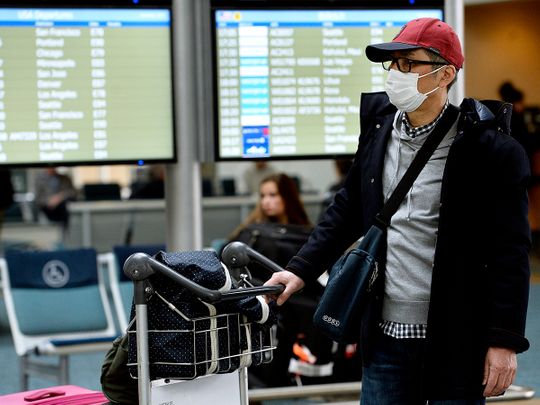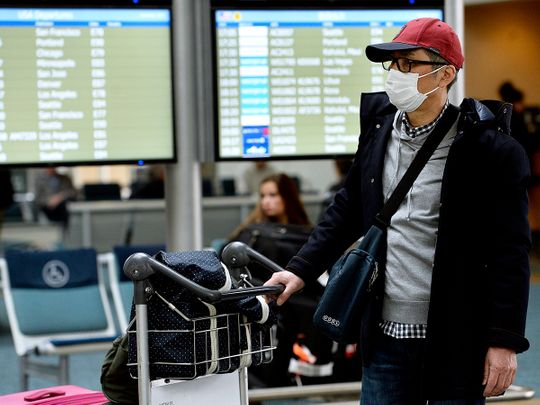If there’s one thing I keep learning the hard way, it’s that traveling in the age of Covid-19 is not for rookies — or the faint of heart.
I’ve made four international trips since the pandemic, negotiating various rules and testing requirements and all the associated stresses: from hard-to-get tests to nail-biting moments wondering whether a negative result would come back within the strict predeparture time frame.
So preparing for my trip to Italy seemed like a breeze. I was on one of the nonstop, so-called Covid-tested flights that enable U.S. citizens who get tested before departure and on arrival to skip the country’s strict quarantine requirement. And securing an appointment for a free rapid test the day before I left at a local CVS was a breeze.
But when the results came in late in the afternoon before my 6 a.m. next-day departure, I pulled up my document only to realize that my CVS Minute Clinic account had me listed under a name different than on my passport. While I go by Jeri Clausing on literally every document legal or otherwise in my life, the one exception is my health insurance, which I get through my husband’s work.
Of course, pre-Covid, health documents were never an issue for travel. If they were, they were generally for shots obtained through private travel clinics that don’t take health insurance. So what name would be on the paperwork never even crossed my mind.
I noticed the discrepancy the minute I pulled up the results. I called the toll-free number listed, but it was impossible to even find an option for getting through to a real person.
I quickly Googled the hours for rapid testing at my home airport, Albuquerque’s Sunport, only to discover that clinic wouldn’t open until the same time my flight was departing. And that clinic’s other private testing center was closing in 15 minutes. And I knew I would never make it in time.
So I hopped in the car during rush hour and zoomed to the pharmacy where I’d had my test.
Turns out that was the right move. The testing clinic was still open, and after taking a picture of my driver’s license and insurance card were able to quickly change it.
The whole incident certainly added a few hours of pre-travel stress, but it also served as a good reminder that every i must be dotted and every t has to be crossed and double-checked in the age of Covid travel.
But the drama was far from over.
When I arrived at the airport the next morning, the woman checking me in at the Delta counter reviewed my documents, then told me she was going to have to mark me as “traveling at my own risk.” I had never been told such a thing before, so I asked her what she meant. She told me Italy was “one of those countries that’s hard to get into,” so they would take no responsibility should I have issues. I explained to her that Delta had an agreement with the Italian government to let in Americans on their “Covid-tested” flights. She looked at me as if I were from another planet, then simply said again, “I am marking you as traveling at your own risk.”
I said fine, and I took my travel documents. But it occurred to me how alarming such a warning might be to the average traveler. After all, I have been writing for months about travel policies, and I am still confused.
What Delta also failed to alert me to was the fact that I would need to take another rapid test at the Atlanta airport before boarding my flight to Rome. While some fellow travelers said they found the information buried deep in the documents about travel to Italy, I don’t recall seeing that when I looked.
And despite the repeated alerts I got from Delta about my plane being prepared, etc., while working in the lounge during my layover, never once did any of the alerts about the upcoming flights and boarding times note that rapid tests were being conducted near the gate. I found out when I asked the desk attendants at the lounge if I should go to the gate early in case I need to queue up to show my test results again.
Fortunately, the process was orderly and fast. And after getting those results and filling some rather confusing forms I was able to board the plane.
On landing, there was one more trial. A more than hourlong wait for yet one more Covid test to get into the country.
Still, while time-consuming and sometimes frustrating, the process was well worth the effort. On Sunday afternoon I arrived in the beautiful, wonderfully uncrowded city of Venice, where I boarded Uniworld Boutique River Cruises’ new S.S. La Venezia, the first river cruise ship to welcome Americans since the pandemic.
Ottawa: Canadians and permanent residents fully vaccinated against Covid-19 will no longer have to quarantine upon their return from abroad starting July 5, officials announced Monday.
From 11:59 pm (0359 GMT) on that day, they will also face reduced testing requirements in this first phase of lifting public health restrictions for travelers.
“We’ll come back to Canadians on next steps,” Health Minister Patty Hajdu told a news conference, acknowledging growing pressure to fully reopen the border.
“We can see the finish line,” she said. “Let’s finish strong and let’s make sure that we protect our gains.”
Ottawa said in a statement it “continues to strongly advise Canadians to avoid non-essential travel worldwide,” citing the risk of importing the novel coronavirus and its variants.
Fully vaccinated or not, foreign nationals including Americans are still prohibited from entering the country for discretionary travel.
And Canadians who can show proof of having received two doses of an approved vaccine – Pfizer, Moderna, AstraZeneca or Johnson & Johnson – at least 14 days prior to arrival must still get pre- and on-arrival tests, be asymptomatic, and have a suitable quarantine plan.
They will, however, not be required to stay for up to three days at a government authorized hotel at their own expense while they await their on-arrival test result, nor have to test again after eight days.
Canada closed its land border with the United States and international airports to all non-essential travel at the onset of the pandemic last year, and has renewed those measures monthly. The latest order is scheduled to lapse on July 21.
A suspension of all flights from India, introduced in April after increased Covid-19 cases were detected in travelers arriving from the country, has also been extended another month. But Pakistan has been removed from that ban.
Pressure has been mounting from airlines and tourism operators, as well as lawmakers in Washington, to ease border restrictions.
Public health officials, Hajdu said, are monitoring the spread of pandemic. She warned that “as Covid rages out of control in other countries, it (still) presents a clear and present danger to all countries.”
Public Safety Minister Bill Blair added: “We recognize that people are anxiously awaiting to reopen the border and, as Canada reaches high levels of vaccination coverage and the Covid-19 severity trends continue to decline, the risks associated with international travel will decrease.”
As of Monday, 25 million Canadians or 66 percent of the population has received at least one vaccine dose, while seven million are now fully vaccinated.
New infections are also trending downward from an April peak.
Source: Read Full Article

